Quotes & Sayings About Art Relating To Life
Enjoy reading and share 5 famous quotes about Art Relating To Life with everyone.
Top Art Relating To Life Quotes
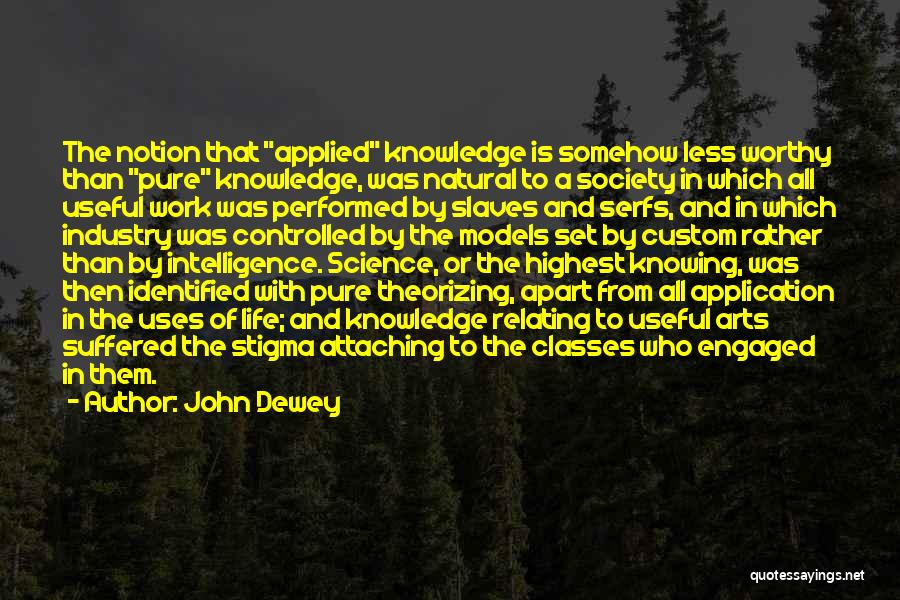
The notion that "applied" knowledge is somehow less worthy than "pure" knowledge, was natural to a society in which all useful work was performed by slaves and serfs, and in which industry was controlled by the models set by custom rather than by intelligence. Science, or the highest knowing, was then identified with pure theorizing, apart from all application in the uses of life; and knowledge relating to useful arts suffered the stigma attaching to the classes who engaged in them. — John Dewey
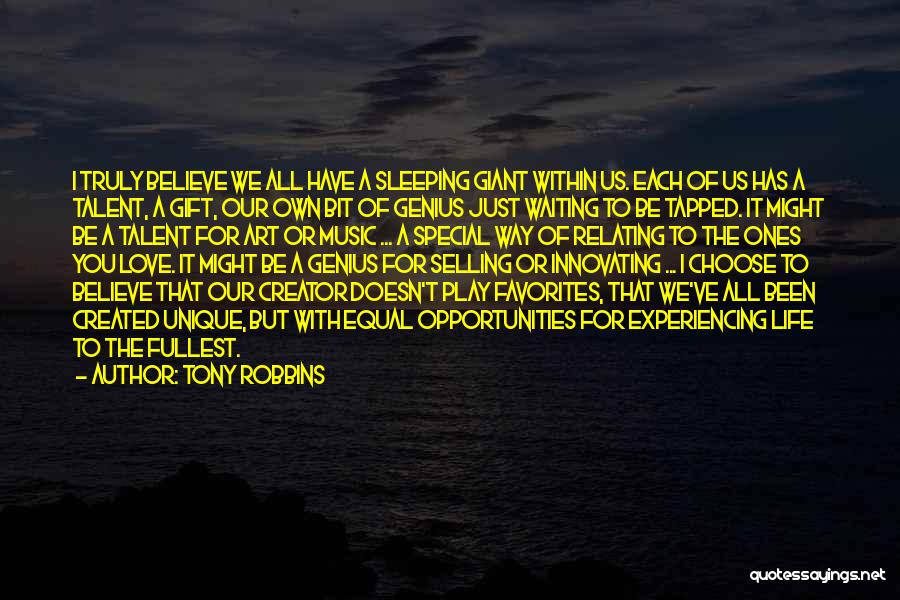
I truly believe we all have a sleeping giant within us. Each of us has a talent, a gift, our own bit of genius just waiting to be tapped. It might be a talent for art or music ... a special way of relating to the ones you love. It might be a genius for selling or innovating ... I choose to believe that our Creator doesn't play favorites, that we've all been created unique, but with equal opportunities for experiencing life to the fullest. — Tony Robbins
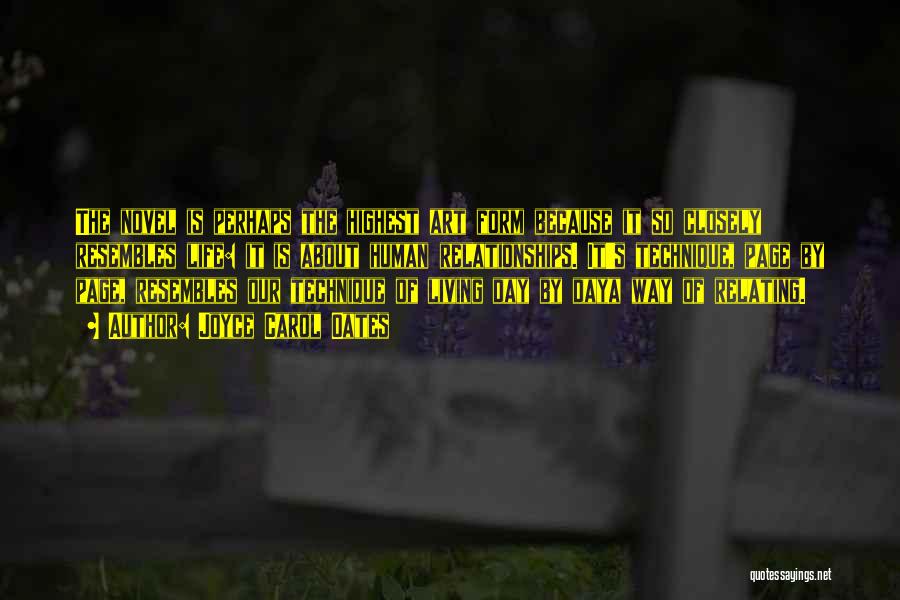
The novel is perhaps the highest art form because it so closely resembles life: it is about human relationships. It's technique, page by page, resembles our technique of living day by day
a way of relating. — Joyce Carol Oates
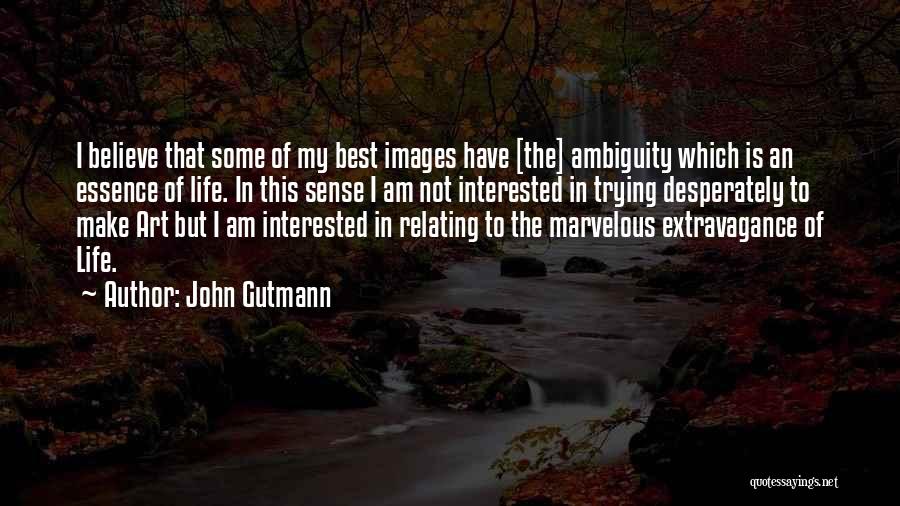
I believe that some of my best images have [the] ambiguity which is an essence of life. In this sense I am not interested in trying desperately to make Art but I am interested in relating to the marvelous extravagance of Life. — John Gutmann
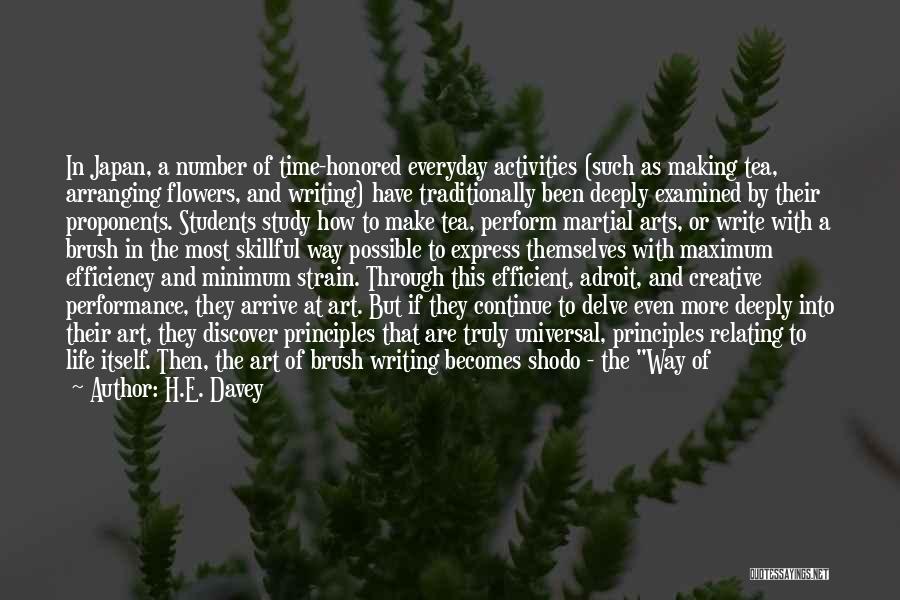
In Japan, a number of time-honored everyday activities (such as making tea, arranging flowers, and writing) have traditionally been deeply examined by their proponents. Students study how to make tea, perform martial arts, or write with a brush in the most skillful way possible to express themselves with maximum efficiency and minimum strain. Through this efficient, adroit, and creative performance, they arrive at art. But if they continue to delve even more deeply into their art, they discover principles that are truly universal, principles relating to life itself. Then, the art of brush writing becomes shodo - the "Way of the brush" - while the art of arranging flowers is elevated to the status of kado - the "Way of flowers." Through these Ways or Do forms, the Japanese have sought to realize the Way of living itself. They have approached the universal through the particular. — H.E. Davey





